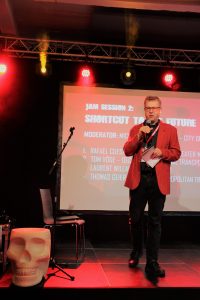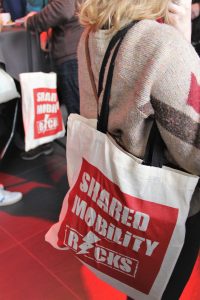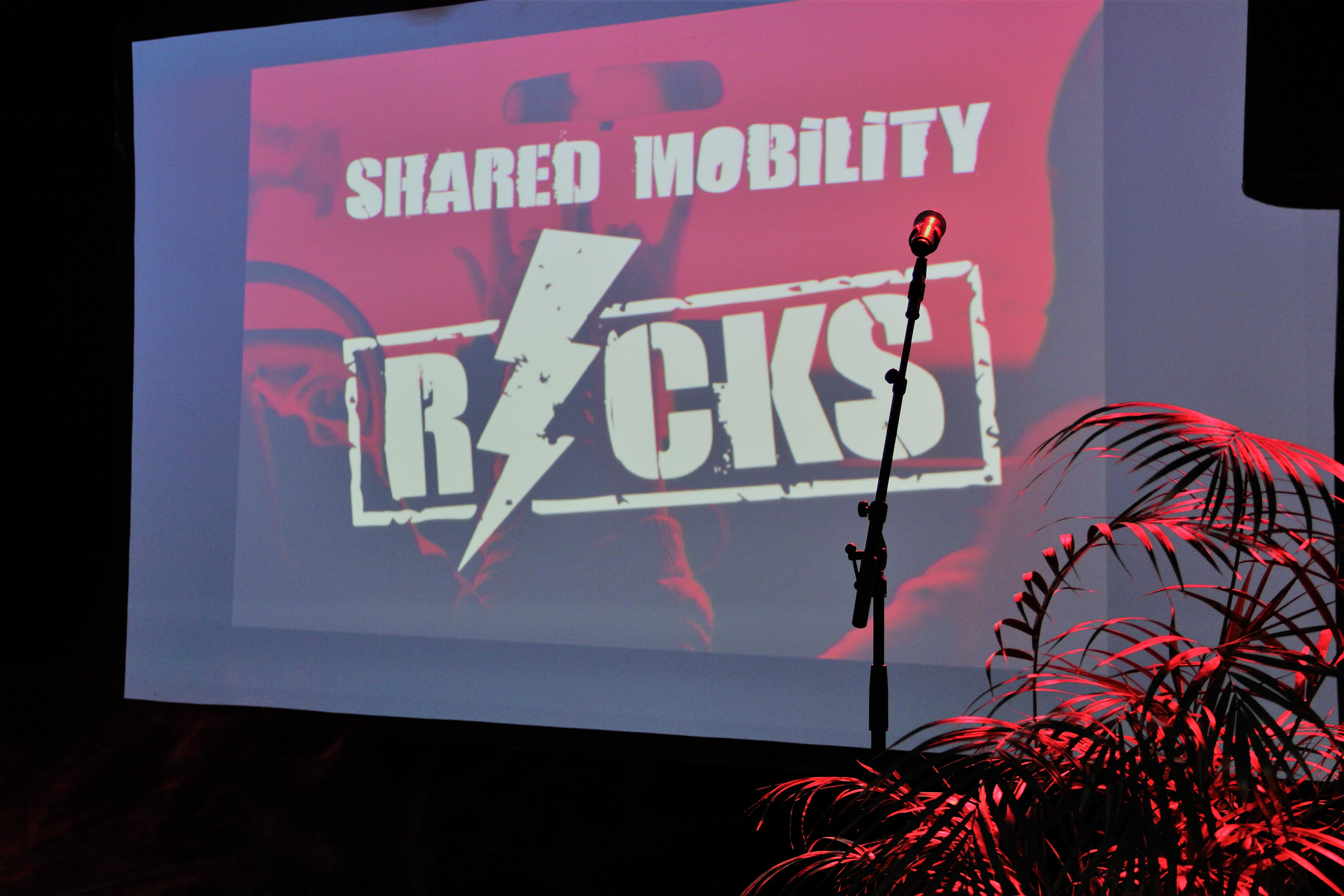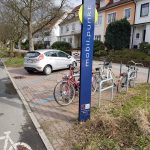How does mixing car sharing with rock music sound? It might seem strange, but this combo gave really good vibes in Aalst (Belgium). Organised by Taxistop and Autodelen (a STARS partner), the one-day Shared Mobility Rocks event brought together shared mobility experts and rock music lovers. “This is the Woodstock of mobility!” said Michael Glotz-Richter, Senior Project Manager in Sustainable Mobility at the City of Bremen (Germany) and STARS partner. “The starting point of why we are here today is to find what we want for our children and for the cities of tomorrow,” he pointed.
Tell me what your favourite rock song is
Iggy Pop, Nirvana, Guns N’Roses… the audience first had to guess the rock song title and/or band to get some candy. Well, it seemed that people loved this musical quiz! “Today, it is all about sharing!” screamed Jeffrey Matthijs, Director of Autodelen. With more than 25 speakers and 200 visitors, the Shared Mobility Rocks event provided new insights on urban design, rural mobility, autonomous vehicles, social aspects… According to a recent PwC study, we will have “80 million less cars in Europe by 2030, but traffic will still rise,” Jeffrey explained. That is why the future of urban mobility is closely linked to a large array of issues: environmental, security, economic… “We should first ask ourselves what our main goals are to improve congestion, safety on the roads, air quality and also to reverse climate change,” explained Isabelle Vandoorne, EC Deputy and Head of the Unit Sustainable and Intelligent Transport.

Michael Glotz-Richter, City of Bremen and STARS partner.
Thinking how to use public space
For Michael Glotz-Richter, the future is also about space and how we can use it with less cars: “The key problem is a fair use of the public street place, and solutions should be found in walking, cycling and traveling together through collective transport services.” For those who are still not convinced that car sharing is a genuine option to mobility, Michael compared a car to a shopping trolley. Humorously renamed a ‘Shopping Utility Vehicle’ (SUV), it takes up space in the street, in your house, where kids can play… This metaphor is a pretty good answer to the absurdity of owning a car. For instance, in the German city of Bremen “one car sharing vehicle replaces 15 privately-owned cars,” highlighted Michael.
Will autonomous vehicles invade our roads?
After Uber’s fatal self-driving car crash that happened in March, doubts and fear around autonomous vehicles go without saying. For Rafael Cuesta, Head of Innovation at Transport for Greater Manchester, “autonomous vehicles can’t dictate the future and they have to be shared in order to create liveable cities.” Moreover, legal and regulatory frameworks will be necessary. “The role of policymakers will be to introduce new rules for public transport and to take into consideration safety and security issues (automation levels),” explained Tom Vöge, Policy Analyst at the Intelligent Transport Systems (ITS). From an industrial perspective, Laurent Willaert, Directeur Public Affairs at the Belgium Federation of Car and Cycling Industries (FEBIAC), suggested to “redesign motorways.”

In Aalst, more than 25 speakers and 200 visitors attended the Shared Mobility Rocks.
Sharing is key in tomorrow’s mobility
The Shared Mobility Rocks event offered a great opportunity to think about the future of mobility in both urban and rural areas. We cannot ignore the development of shared mobility solutions and services, such as car sharing. This reinforces the importance of projects such as the H2020 STARS project and its research on multimodality transportation and recommendations to help mobility stakeholders and policymakers make the right decisions and develop the best strategies for environment-friendly and cost-effective car sharing services in European cities.
Post written by Mathilde Bazin-Retours from LGI and STARS partner.
Comments are closed.





